Ben Whishaw on ‘A Very English Scandal’: ‘Attitudes have only really shifted over the last five years’
Russell T Davies' three-part drama about the Jeremy Thorpe scandal is now on BBC iPlayer.
By Will Stroude
This article first appeared in Attitude issue 295, May 2018.
Words: Simon Edge
Ben Whishaw is sitting in a caravan in the grounds of a Victorian gothic mansion in Buckinghamshire, with blood splattered all over his face.
The gore seems to have come from a Great Dane called Rinka, which has been shot in front of him. Fortunately, no animals have been harmed in the filming of this scene. I know, because I’ve just seen the corpse of the dead hound lying in a bed of bubble wrap — and it’s reassuringly prosthetic.
In the late Seventies, poor, butchered Rinka was a household name. Her owner, a model called Norman Scott, had been the gay lover of Jeremy Thorpe, the brilliant and ambitious leader of the Liberal Party. To the macabre fascination of the nation, the dog was shot and killed in a botched attempt on the life of Scott himself, who had (what we would now call) stalked Thorpe after the affair came to an end.
In what was billed as the trial of the century, the leader of Britain’s third political party was charged with conspiracy and incitement to murder.
The verdict was almost as sensational as the case itself. After a staggeringly biased summing up by the judge, who vilified the prosecution witnesses and suggested to the jury that it was impossible to imagine as decent a chap as Thorpe actually committing buggery, the politician was acquitted of all charges. But it ruined him.
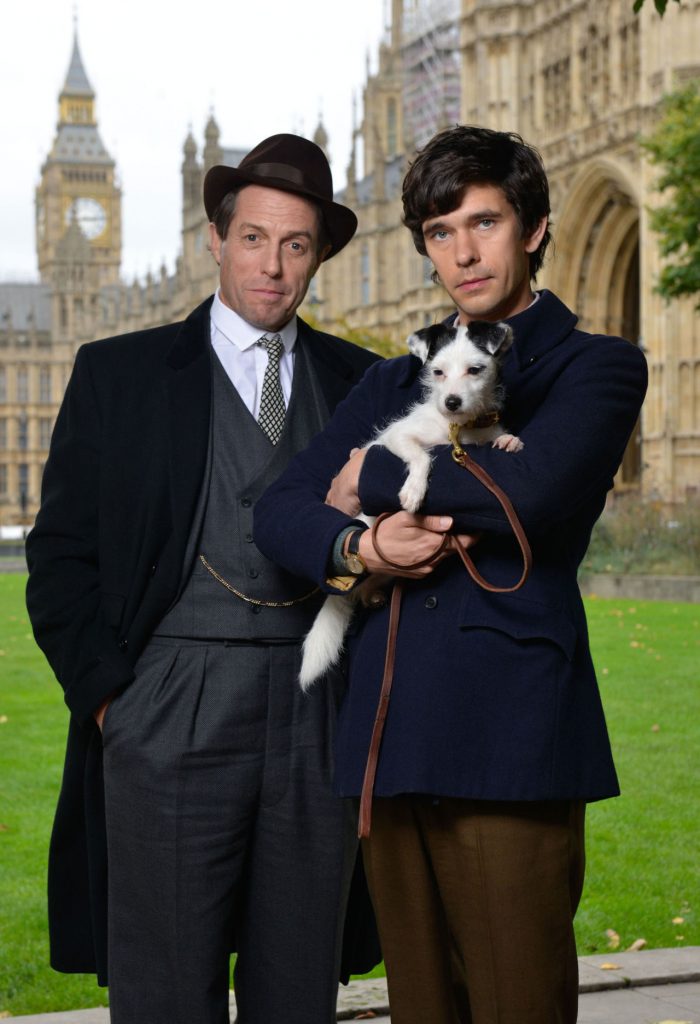
The case has since drawn the attention of a succession of writers. The latest is journalist John Preston, whose book, A Very British Scandal, has been turned into a three-part BBC drama, directed by Stephen Frears — best-known for his Oscar-winning film The Queen — and starring Hugh Grant as Thorpe and Whishaw as Scott.
Whishaw, born in 1980, freely admits he knew nothing about the case before he was offered the part, but was shocked by the brutal way in which Scott, the only openly gay witness, and the victim of the plot, was treated at the Old Bailey.
“I’m sort of amazed,” he says. “I feel as if attitudes have only really shifted in a widespread way over the past five years or so, when it has become unacceptable to say homophobic things — even under your breath.
“But for lots of my life it was [acceptable], and you encountered it a lot. And I’m sure it’s still happening all over the place.
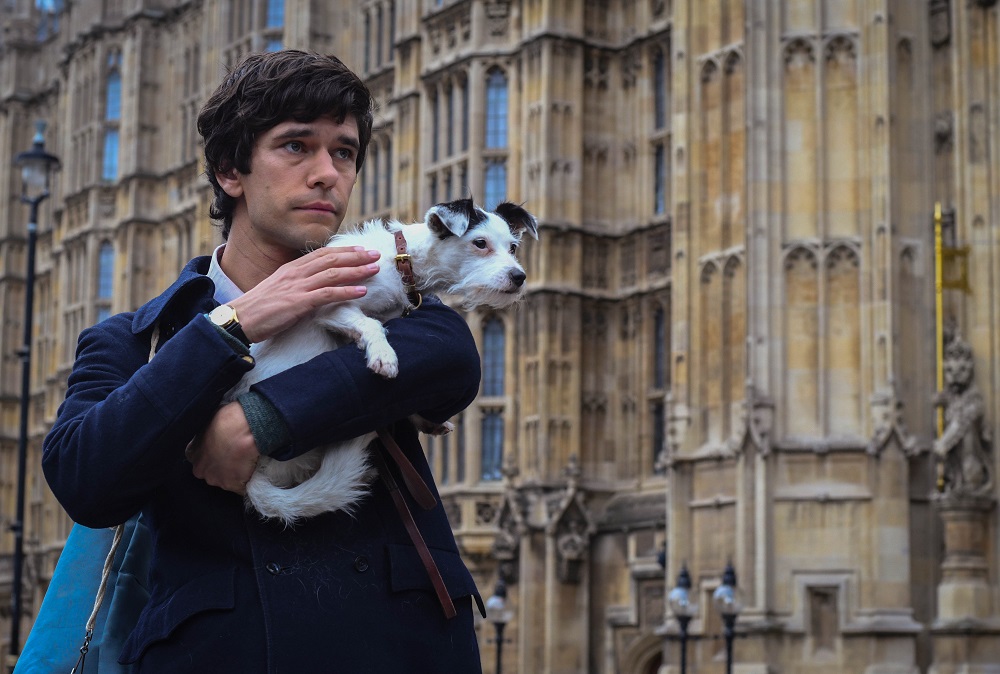
“Back then, obviously, you could be a senior judge and say all those revolting things, and they painted Norman as this hysterical poof. It’s awful, but kind of hilarious as well.”
Calling it hilarious may seem like an odd take on the grotesque homophobia of the times, but producer Dan Winch chips in to back him up. “What actually happened was farcical,” he says. Indeed, this tongue-in-cheek production takes the view that this may have been the only murder plot ever hatched in the House of Commons, but its bungled execution was hilariously inept.
The story began in 1960 when Thorpe, then 30 and the MP for North Devon, met 19-year-old stable hand Scott. Despite homosexuality still being illegal, they had a long relationship, with passionate love letters to prove it — in which the politician called Scott “Bunnies.” But these came back to haunt Thorpe after they parted.
Somewhere along the way, Scott lost his National Insurance card — which he needed to get work — and trying to get it back fuelled his increasingly obsessive behaviour. When Thorpe brushed him off, Scott asked for money and he remained persistent, even when he got the cash.
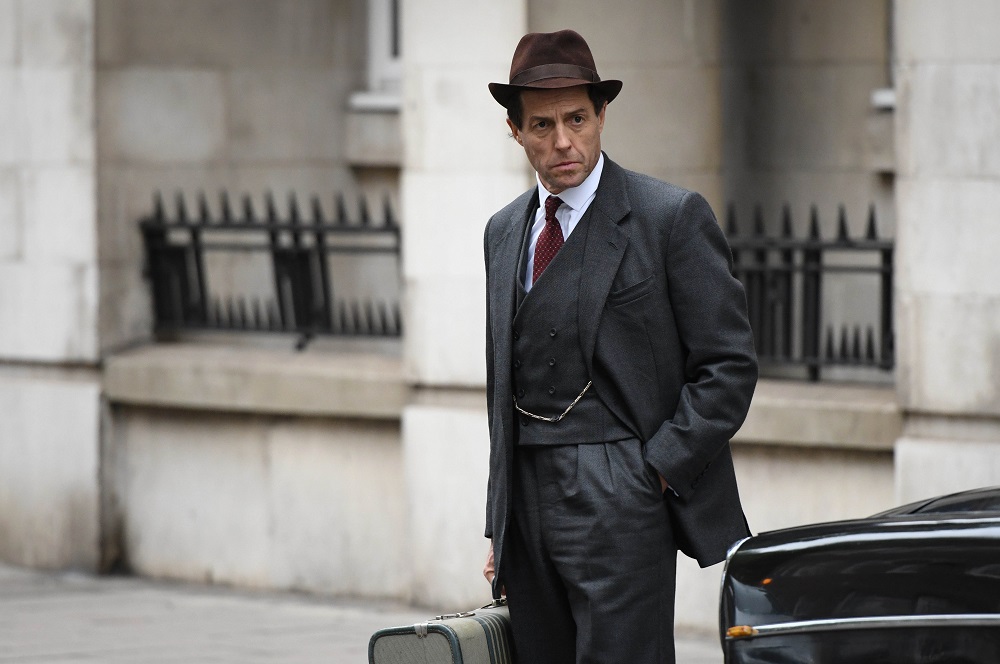
By 1975, Thorpe was married, widowed and married again. He had been offered a Cabinet post in a proposed coalition with Edward Heath’s Conservatives and had serious ambitions to become prime minister. He began to wish he could rid himself permanently of his stalker. It would, he is reported to have said, be “no worse than killing a sick dog.”
He sought the help of his friend Peter Bessell, a fellow West Country MP, who was also a philanderer and a serial bankrupt. Somehow a hitman, in the shape of ex-airline pilot Andrew Newton, became involved, but he was a heavy drinker and so dim that he was nicknamed Chicken Brain. He first botched the killing by going to Dunstable when Scott was in Barnstaple, then famously shot the dog Rinka instead of Scott.
It was these couldn’t-make-it-up aspects of the story which fired the imagination of Russell T Davies, creator of Queer As Folk and the revived Doctor Who, and a master of black comedy. He wrote the script for the drama and, in doing so, has brought his own brand of subversiveness to the project.
“It walks the balance between satirical humour and a punch in the gut,” says executive producer Dominic Treadwell-Collins, who previously worked on EastEnders. “That’s what’s lovely about getting Russell working with Stephen Frears: one of our best writers and one of our best directors working together. We took the book to Russell, who said he had always wanted to tell this story. It’s about powerful men, and what they think they can get away with — the conspiracy of silence. It’s also a gay story.
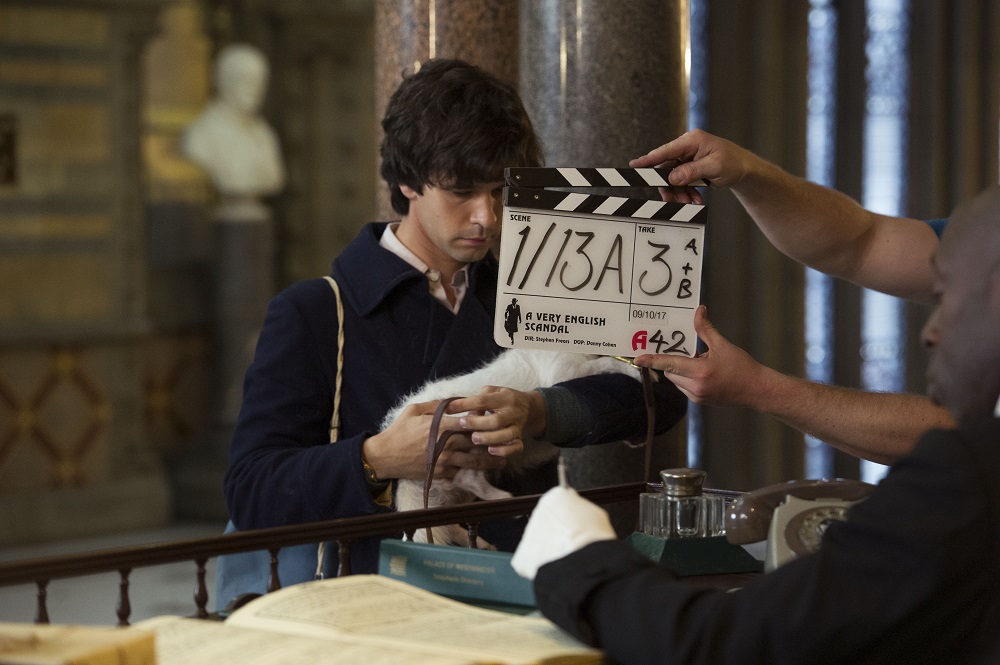
“Russell is the first gay man to tell this story, so he’s also looking at the fact that homosexuality had just been [partially] decriminalised while this was going on.”
Despite his acquittal, Thorpe found himself shunned after the case, and remained so for the rest of his life. He died little more than three years ago, aged 85, after a long battle with Parkinson’s disease, which is why the case can now be dramatised without the worry of libel proceedings.
Treadwell-Collins is quick to point out: “We’re careful not to say that Jeremy Thorpe said ‘hire that man and kill that [other] man’,” he says. “He was found not guilty and nobody knows exactly what happened. But we’re going by the version in John Preston’s book, because that’s the one we’ve got the rights to. That version implies that Jeremy said, ‘Rid me of this man, I’m going to look the other way’.” Alex Jennings, who plays Thorpe’s friend Bessell, remembers the Liberal leader from his childhood and sees him — at least in part — as a victim of homophobia.
“Jeremy Thorpe was a considerable figure when I was growing up,” he says. “My grandparents met him on holiday in Devon. They were Labour supporters and he changed the way they voted. People were in thrall to him and charmed by him. Homosexuality was illegal and he was having to live under the cloud of that, leading a double life. Had it been legal, things might have been very different.”
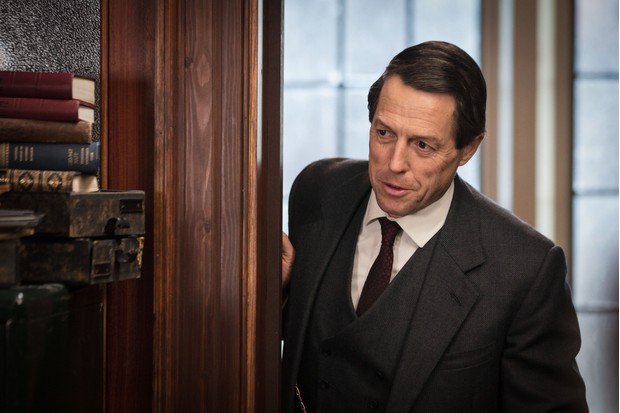
At the time, Scott was portrayed by the press as a pathetic, mincing figure whose life was worthless. It was hard to imagine a charismatic, glittering man such as Thorpe falling for him. In the witness box, he complained that Thorpe had “infected” him with the virus of homosexuality and also told the court that losing his virginity was “like being cut in half.”
From an early trailer, however, it appears that Davies has made him into a more defiant, modern figure. We see Whishaw emerge from the Old Bailey to declare: “I was crude, I was vile, I was queer, I was myself.”
But Treadwell-Collins insists that the script does not turn Scott into anything other than what the man truly was.
“At the beginning, Norman is a quiet little guy who gets caught in Jeremy Thorpe’s world,” he says. “But it changes him, he gains confidence and this is his journey.

Jeremy Thorpe died in 2014 at the age of 85
“Russell’s point is that it was a very brave thing for Norman, at that time, to stand up and say, ‘I’m gay and I was having sex with that man’. We show how that emboldened Norman and gave him his voice.”
Scott is the only figure directly involved in the case who is still alive. Now in his mid-seventies, he lives in Devon. Whishaw met him for research.
“Norman is a very lovable character on first meeting, very charming, very funny, clever,” says the Bafta award-winning star. “The Establishment tried to rally around one of its own, and he was a victim of that.”
Whishaw, who appeared in London Spy last year, also has no qualms about modern audiences laughing at the story. “It’s farcical yes, just in the way that life sometimes is. None of what Russell has written has been heightened or fantasised. Life, even when it’s awful and serious, has a funny element.”
All episodes of ‘A Very English Scandal’ are available to watch on BBC iPlayer now.
